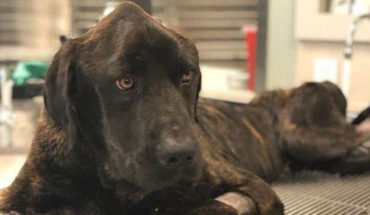The virtual world is full of new experiences and opportunities, and although there is no doubt that the hyperconnectivity brought by the pandemic has opened up great possibilities for us, it is also true that it confronts us with new challenges, especially when it comes to guaranteeing the safety that children and adolescents need to navigate in virtuality, because the risks to which they are exposed are increasingly latent. One of the most common dangers in the digital world is grooming, a term used to talk about the sexual harassment experienced by minors in digital media, and which is usually perpetuated by adults who seek to establish contact with minors for sexual purposes. Given this scenario, for Twitter it is essential to take care of the health of the conversation, as well as provide security and confidence to those who enter the platform, especially the most vulnerable. Therefore, in partnership with the organization Grooming Argentina and with the help of experts in the field, they shared five tips to protect children and adolescents in the virtual world:
Dialogue openly: If you are a person who is in charge of a child or adolescent, remember that it is essential to maintain constant communication that invites reflection and trust, and in which clear, concrete and adequate information is provided.
Get involved and accompany in the process: Teach about how to use digital platforms, and comment on the risks that interacting with people you do not know can cause.
Provide tips and tools: Remind children and teens that it’s important not to share personal information, not accept requests or messages from strangers, and take care of their privacy and intimacy.
Approach the platforms and educate with your example: Being close to digital platforms will allow you to know the trends and the type of conversations that are current for children and adolescents. Also, remember to use your accounts and profiles responsibly to set a good example.
Express your constant support: You can reinforce the idea of the importance of asking for help in the face of the slightest threat or danger that arises on the Internet. Similarly, report if you know that a child or adolescent is in danger.
These tips arose as a result of the creation of the first Latin American Grooming Guide by Twitter and the NGO Grooming Argentina, as well as a recent Space that was held on Twitter, where Danya Centeno, Twitter’s Public Policy Manager for Spanish-speaking Latin America; Hernán Navarro, founder of @GroomingArg; Luisa Alfaro, de Hijas de Internet de México; Stefanny Diaz, Minka Colombia; and Julieta Schulkin, journalist and technology expert from Argentina, talked about grooming, how it affects children and adolescents and how important the role of accompaniment by adults is, in addition to sharing tips, alerts and prevention measures. During the Space, Danya Centeno (@DanyaCenteno), Twitter’s Public Policy Manager for Spanish-speaking Latin America, pointed out that “since the pandemic began, there has been an important boom in hyperconnectivity, and minors have also been more exposed to the digital world. Hence the need to make visible what it is and how it occurs on the internet, so that parents have more tools to combat grooming on digital platforms”. Hernán Navarro (@HernanGNavarro), founder of @GroomingArg, added that “this first guide in Latin America has as its central axis to provide accurate information to communities and families who do not know about the subject or do not have access to this type of information.” In addition, he said that in Argentina, six out of 10 children and adolescents talk to unknown people on the Internet. For her part, Luisa Alfaro (@LuiAlfaro_) stressed that “when we talk about digital rights, it is important to bear in mind that we must guarantee the safety of the youngest and youngest on the Internet, so it is urgent that we all get involved and face it”. While Julieta Schulkin (@chulkinet) pointed out that “we have to think about how our children’s fingerprints are built. Everything can start with a simple act such as giving permission in schools for photos with your children’s faces to be published. And that it is important to ask ourselves how we create trust with our children so that they can tell us when they are exposed to a virtual problem, because “it is difficult to know what your son or daughter does but in building trust everything begins”. To conclude, Stefanny Díaz (@StefannyDiaz7) stressed that “in hyperconnectivity children already they are not alone and are exposed to hundreds of people who can use technology or games as techniques to get whatever they want.” For Twitter, the safety and health of the public conversation is one of the top priorities. Twitter has a zero-tolerance policy towards child sexual exploitation and a set of rules aimed at creating a safe and free environment. Likewise, it continues to work on creating alliances with organizations such as Grooming Argentina, to work together for a healthier and safer conversation for all people in the digital environment.





